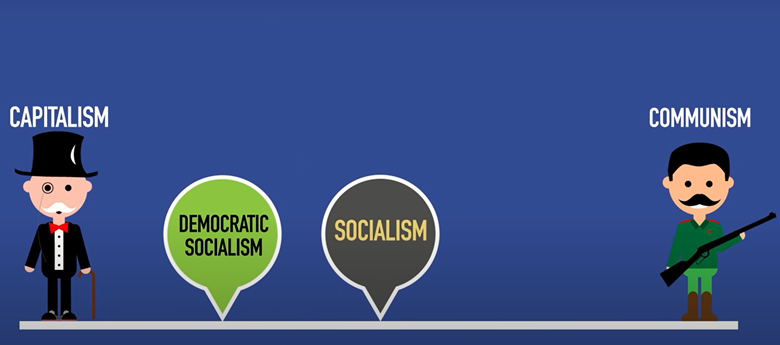Professor Ken Zapp
What is Socialism?
On March 16, Professor Ken Zapp gave a very interesting presentation on socialism to a Zoom audience of Skidaway Hamiltons and Abigails. Professor Zapp said, to its adherents, socialism is an economic system in which benefits are shared in a way that is considered just and fair. To some, it also means government ownership of the means of production. He reminded us that socialism developed as a reaction to some of the criticisms of capitalism. Marx’s critique of capitalism: 1) capitalism is not stable, giving rise to business cycles of growth and decline; 2) capitalism takes value away from the workers who create it; 3) capitalist control leads to inequality as the ownership class extracts more and more value; 4) in democratic capitalism, owners of capital own the government; 5) all this, according to Marx, would lead to worker alienation and revolt. Marx said very little specifically about socialism, believing it was a transitionary system to the ultimate system of communism.
Professor Zapp gave us a number of examples in history of attempts to deal with the negative consequences of capitalism. In the late 1800’s, Bismarck created social security in Germany to avoid poverty of retired workers. Keynes developed countercyclical macroeconomic policies in England to temper cyclical declines. The New Deal in the US was a government effort to stimulate the economy when unemployment was nearly 25%. In Germany after WWII, American post-war leadership introduced co-determination which placed worker representatives on corporate boards. It is still used in Germany for companies with over 2,000 employees.
Professor Zapp makes this distinction between liberal and socialist practices today: liberal policies try to mitigate the negative consequences of the capitalist system without changing the political system. Socialist policies seek to change the decision-making process. Examples of liberal policies: nationalized health care, free education, family leave, generous pension and unemployment benefits. Examples of socialism: In Sweden, workers have an equal say on corporate decisions on health and safety issues and companies cannot move without the approval of workers. Also, most European countries do not allow corporate money in the election process. In Europe, most companies in non-competitive industries, like utilities, are owned by the government.
In Q&A, Professor Zapp talked about the success of democratic socialist economies in Nordic countries. Sweden has extremely generous vacation and leave policies yet it achieves some of the highest productivity in the world and has little poverty. It does this by making a huge investment in worker education and training. Women make major contributions to the Swedish economy because the government provides childcare and very generous family leave policies. Could such policies succeed in the U.S.? It would be difficult because of the problem of misinformation and lack of trust in government. For many, the term “socialism” is pejorative. Professor Zapp suggests not to focus on “isms” but rather talk about policies and practices, like worker education, training, and healthcare.
Professor Zapp played the following video on socialism to democratic socialism and their place between capitalism and communism.





